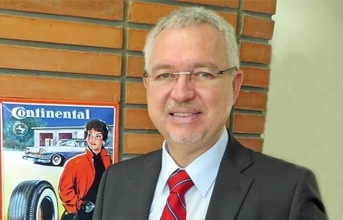
In summary, it is necessary to understand the customer's expectations first. Next is defining a robust product design based on DFSS (Design For Six Sigma) or DFM (Design For Manufacturability), followed by implementing capable and robust production processes based on the lean principles.
"Then we have to choose the right suppliers who understand, accept and follow our philosophy. And not to forget, we need to empower our people accordingly so that we have the right person for the right job.
"Combined with a Continuous Improvement Culture, we can create the best possible cost structure without sacrificing Quality and in fact, attain Quality almost for free due to avoidance of non Quality," Friedrich says.
Evolving role
Today's manufacturing plants are all about centralisation of functional areas such as IT, procurement, warehousing, and even HR and accounting. In this scenario, how is the role of the ‘Plant Head' evolving?
"From my perspective, the organisational approach, centralised or decentralised, is not the key question. Many companies are following the current main stream in the industry, once in one and then in the other direction, like a sinus curve.
"Restructuring is and always was modern. It is a good practice to question the status quo in order to find out what the right approach for your own organisation is," says Friedrich.
Considering the local environment and circumstances, a new structure might be an improvement. If a change has been made, it has to be sustained at least for some time. "We have to understand that every organisational change has a negative impact on performance at least in the beginning, until the organisation gets stabilised. Only after stabilisation will we have evidence whether our change was successful or not. That will take some time and adjustments can be made if requested."
With the same or even more importance as the organisational structure itself, Friedrich believes that it is important to clearly define tasks (processes) and based on that, the roles and responsibilities. Once the process is defined and the role and responsibility is understood and accepted, the organisation is able to act successfully without wasting valuable resources.
Coming to the role of the plant head, the prime task is having the best possible performance in the organisation, he says. To know about that, the plant manager has to monitor the performance, identify processes which are not running as expected and take action to improve.
The focus is on continuous improvement and if the result of this process is restructuring, it has to happen at the right moment. "If some functional areas have to be centralised, we have to go for a modern structure like a Matrix Organisation.
"In a Matrix Organisation, the plant head has to ensure that the roles and responsibilities are defined and the right team spirit can be developed. Without the right team spirit a Matrix Organisation will not work. Soft facts, mind sets and company culture are becoming more and more important," Friedrich adds.
(Continued on the next page)


























